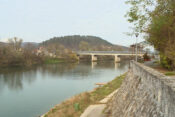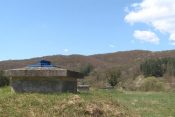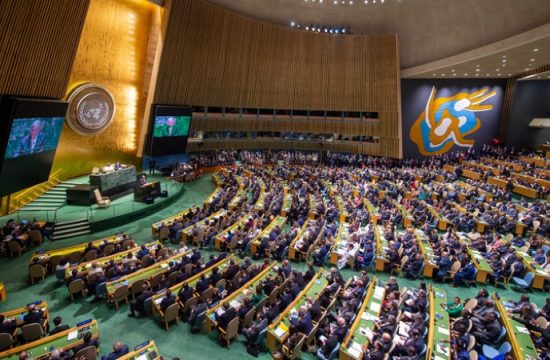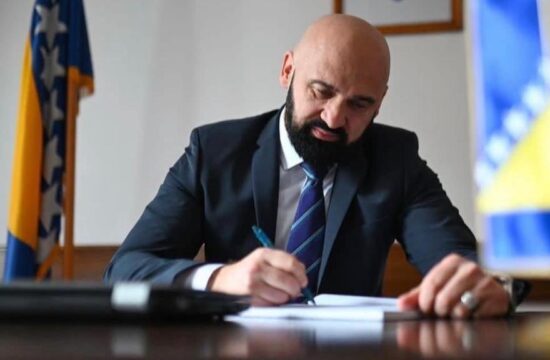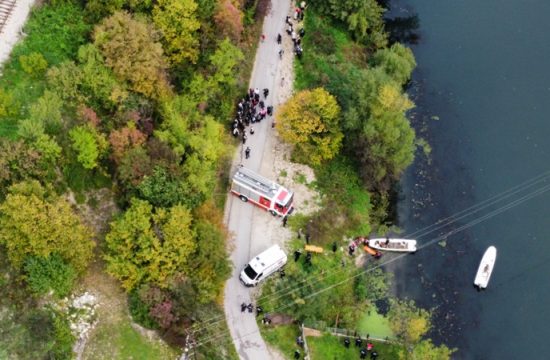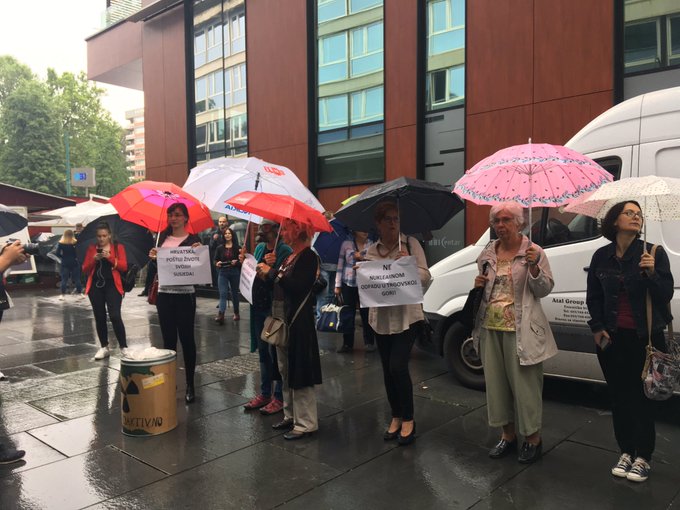
Members of an environmental NGO protested in front of Croatia’s Embassy in Sarajevo on Monday over the neighbouring country’s intention to dump its nuclear waste near the border with Bosnia, which, according to officials, may severely jeopardise the lives and well-being of citizens.
The ‘Climate Save Bosnia’ NGO organised the protest, but not too many citizens participated. The NGO said that’s because Bosnians are lethargic.
“Sarajevans dropped the ball today,” the NGO said, adding that citizens likely expect others to solve their problems.
They said that the lives of more than 300,000 Bosnians are jeopardised because of Croatia’s plan.
Since Croatia owns half of the Krsko power plant in Slovenia, the country needs to take over half of the nuclear waste from that power plant by 2023. The country adopted a strategy which names the unused Cerkezovac barracks, in Trgovska Gora, as one od seven most likely locations for dumping the waste.
But Trgovska Gora is only 800 metres away from the border with Bosnia and about a kilometre away from the town of Bosanski Novi.
“Experts from Bosnia and Croatia have concluded that this location is absolutely not suitable and that it represents a big danger for Bosnian citizens,” Climate Save Bosnia said.
They also criticised Bosnia’s institutions, which they said reacted very “mildly” and were “lazy” regarding the issue.
“If our authorities are not interested, then why would Croatia be? We are today sending a protest note to the Croatian Embassy, but at the same time to Bosnia’s institutions as well, we demand urgent and adequate action,” they said, adding that they will also try to turn to legal means if there is no reaction.
They also said that Croatia breached the ESPOO Convention (Convention on Environmental Impact Assessment) as it did not take into account Bosnia and its citizens when it worked on a study on what impact the dump may have on the environment.
The Minister of Spatial Planning, Construction and Ecology in Bosnia’s Serb-dominated semi-autonomous entity of Republika Srpska (RS), Srebrenka Golic, said that she expects the RS Government to declare part of the Una river a protected national park, as is the case in the other semi-autonomous entity, the Federation (FBiH).
She said she will not back down from protecting the 230,000 citizens in nine municipalities living along the river and near where Croatia plans to dump its waste.
Croatia is obligated to conduct a study of what effects the dump may have on the environment and must inform Bosnia and Herzegovina, as an affected country, of all phases of the study, she said.
She warned, however, that Croatia keeps ignoring all the complaints coming from the RS and Bosnia and Herzegovina.
According to Bosnia’s Minister of Foreign Trade and Economic Relations, Mirko Sarovic, the situation regarding the issue is extremely complex and the concerns coming from Bosnia are legitimate.
“The danger is a lot bigger than is being portrayed in the public. Bosnia has the right to talk about it and try to raise the issue to a higher, international level, as we will in the future, the coming decades, either endure or not endure the consequences of the dumping of nuclear waste just 500 metres away from the Bosnian border,” he said.
He said it was not fair from Croatia that it never considered any complaints and concerns coming from Bosnia regarding the issue.
“It is as if your neighbour would dump his garbage at the very place where your property begins,” he said.
“A difficult period is ahead of us, during which we should use all possible means, including international ones, for Bosnia’s Presidency to raise this issue to the highest possible level,” he stressed.
He also mentioned the possibility of a lawsuit against Croatia, saying that “they never had issues with suing anyone in the region, so why should it be uncomfortable for us to do so?”
“This is about a country which has a nuclear power plant, and the dump will be filled every year. We don’t know what might happen in 50 or 100 years, how it will impact the plant and animal life and people’s health,” Sarovic said.
“We have nothing against it being built, but build it somewhere 100 or 200 kilometres within Croatia,” he said.
Croatia’s final decision on the location will be made in September.

